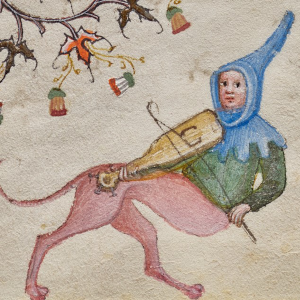
Plotting Poetry 6: The Plot. Storytelling in Verse.
12-13-14 June, 2023Eötvös Loránd University (ELTE) and
Institute for Literary Studies Research Centre for the Humanities, Budapest
Confirmed keynote lectures
Camille Bloomfield (Université Paris-Cité)“Personal Storytelling in Instapoetry: A Statistical Approach”
Jean-Baptiste Camps (École Nationale des Chartes)
“From Epic Poetry to Knightly Romances ? Monitoring the Evolution of Old French _Chansons de geste_”
Call for papers
Plotting Poetry is a conference series focussed on computational, statistical and other quantitative approaches for the study of poetic texts, and of poeticity more broadly.
This quantitative focus, this insistence on the formalization and operationalisation of texts, from simple pen and paper counting and compiling to complex algorithms, provides us with a number of paths to analyze, describe, interpret, attribute, classify, track and generally access the texts. The Plotting Poetry conferences bring together a friendly community of researchers, and articles rooted in the conference papers have given rise to several peer-reviewed collective volumes.
The name of the group stems from an effort to translate a (perfectly serious) pun by the French modernist poet Guillaume Apollinaire, who in 1917 wrote that poets should “[machiner] poetry as has been done for the world”, where the verb machiner is visibly used for mechanize, although it really means to plot, as one would plot a coup. In this group, we are plotting against our own limitations by trying to plot literature on graphs, devising mechanized approaches to dissect the mechanics of poetry.
This year’s conference welcomes a focus on the many forms of storytelling in verse. Some of humanity’s earliest narratives were written in verse; and later on too, versified forms of storytelling remained popular; still nowadays, one can find many practices of narrative verse. It is interesting to see how a specific verse form changes the rhythm of the narration, and can even influence or support the plot. In many cases, one can observe how different meters, strophic structures or other poetical patterns influence or determine the ways in which stories are told, whether within the same poetical tradition or where similar or identical topics are found across different language areas. Compared to prose, narrative verse has been more frequently accused of misrepresentation, because of its more artistic, more formal, one would say more artificial, elaboration. Nevertheless, epic or narrative poetry has been and still is present in most cultures and literary traditions.
Papers addressing ancient, medieval, Renaissance or even later epic poetry, ballad-like genres, or different epico-lyrical forms, as well as the 20-21st century “mixed” genres, are all welcome, from the lowest to the highest registers, in any language area.
This focus on narration in verse is not an exclusive one, and we encourage the submission of papers that use quantitative tools and methods in investigating poetry or poeticity, regardless of their link to narrative poetry. Besides, as has been traditional at Plotting Poetry conferences, works on other genres may also be included, provided that a mechanization or quantification apparatus is being used to explore their poeticity.
Some of the topics to consider include but are not limited to:
- traditionally narrative verse forms and meters
- strophic forms of storytelling
- mixing of verse and prose
- repetition and parallelism in epic poems
- sung stories and the relationship between melodic and metric patterns
- spoken narratives and their prosodies (rap, slam…)
For this 6th Plotting Poetry conference, our hope and plan is to have an on-site, physical conference, in Budapest, Hungary. However, the last three years have taught us to be flexible, and we are not excluding the possibility for some of the papers to be given remotely, incorporating some degree of hybridity to the format to accommodate the global health situation as it keeps unfolding. There is no registration fee.
Please, submit your abstracts (max. 1600 characters including spaces) via this form until February 20, 2023. Abstracts accepted for the conference will receive an answer by the 1st March.
| Organizers & programme committee |
Levente Seláf
Margit Kiss
Anne-Sophie Bories
Pablo Ruiz Fabo
Petr Plecháč
|
| Contact |
